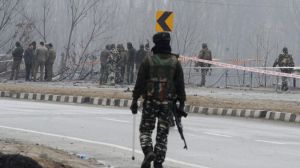Arch foes Iran, Libya, N Korea are no longer `rogues’ for US
WASHINGTON, JUNE 20: Iran, Libya and North Korea are ``rogues'' no longer,the US State Department has decided.Now they're just ``states of...

WASHINGTON, JUNE 20: Iran, Libya and North Korea are “rogues” no longer,the US State Department has decided.
Now they’re just “states of concern”, Secretary of State MadeleineAlbright said in a radio interview.
“Some of those countries aren’t as bad as they used to be. They say: `We’vedone some stuff so why are you still calling us a rogue state?’,” one StateDepartment official said.
Or, as State Department spokesman Richard Boucher put it more carefully onMonday: “It’s just a recognition that we have seen some evolution indifferent ways in different places, and that we will deal appropriately witheach one based on the kind of evolution we’re seeing.”
Iran, for example, has become more democratic, with presidential andparliamentary elections. Libya has handed over the suspects in the Lockerbiecase for trial and North Korea has declared a moratorium on tests of itslong-range missiles.
Even Iraq, a hardcore “rogue state" under the old description, is now “astate previously known as rogue,” to quote Boucher’s jocular formulation.Albright, speaking on National Public Radio’s Diane Rehmshow, said: “We arenow calling these states `states of concern’ because we are concerned abouttheir support for terrorist activities, their development of missiles, theirdesire to disrupt the international system.”
The Clinton administration, and especially Albright as ambassador to theUnited Nations, was once an enthusiastic proponents of the “rogue state”theory.
In an April 1994 lecture, she divided the countries of the world into fourcategories international good citizens, emerging democracies, rogue statesand countries where a state hardly exists, such as Somalia and Sierra Leone.She defined a “rogue state” as one that had no part in the internationalsystem and that tried to sabotage it. US policy should be to isolate them,she added.
For the past year or so, the United States had used the term mainly forcountries it thought might be working on long-range missiles. This was thejustification for planning a controversial national defence against theirmissiles.
But experience, especially with the isolated Stalinist state of North Korea,has shown that it might be more productive in the long run to engage indialogue.
In the case of Iran, the United States has been actively seeking a dialoguewith the government, despite repeated rebuffs from Tehran.
Talks between the United States and North Korea, which have no diplomaticrelations, have persuaded Pyongyang to freeze its nuclear programme, allowthe United States to inspect suspect sites and suspend the missile tests.The talks may have been a factor in persuading North Korean leader KimJong-il to take part in last week’s summit with South Korea.
Photos





- 01
- 02
- 03
- 04
- 05


























